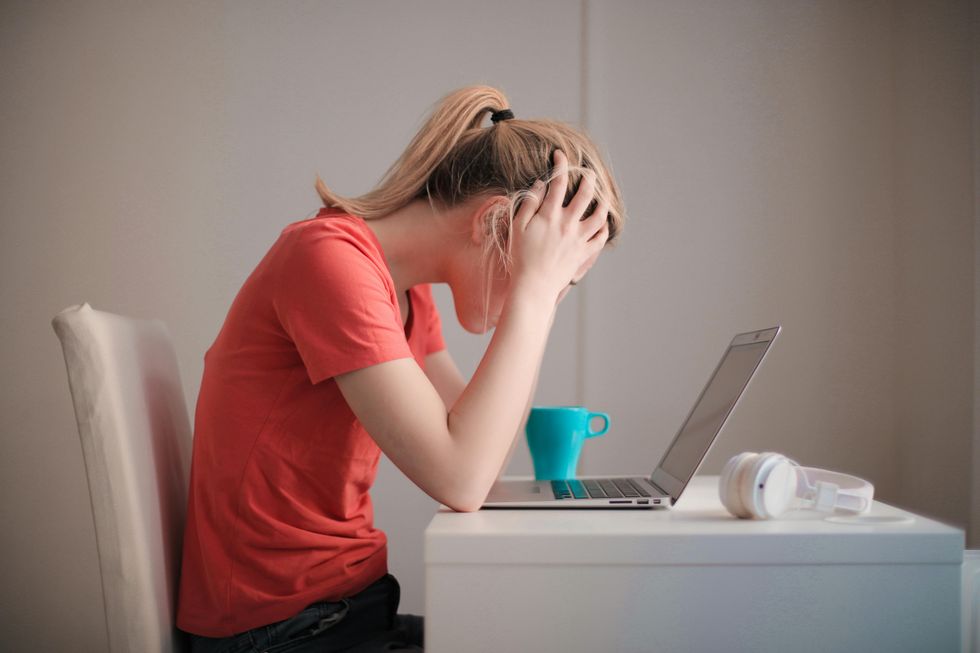Becca Monaghan
Jun 09, 2025
Can you trust the mental health advice on your feed?
DW - Lifestyle & Culture / VideoElephant
As the boundaries between home and office continue to blur, a new wave of workplace burnout is sweeping across the globe – and remote workers may be among the hardest hit.
Yet, while many grapple with rising stress levels and digital overload, new data reveals a surprising contrast: skilled trade workers such as electricians, plumbers and joiners are among the least likely to report work-related stress.
According to analysis by Confused.com, which reviewed reports of stress, anxiety and depression across various industries, tradespeople and machine operators are experiencing significantly fewer mental health struggles than their desk-bound counterparts. In fact, just 720 cases per 100,000 skilled trade workers were recorded in 2023/24 – well below the national average of 2,260 cases per 100,000 UK workers, as reported by the Health and Safety Executive (HSE).
At the other end of the scale, professional occupations – including accountants, lawyers, teachers and doctors – had the highest number of stress, anxiety and depression reports. In 2023/24, 2,740 cases were reported per 100,000 employees.
The findings raise questions about what makes certain roles more mentally sustainable than others – and whether the work-from-home culture, once hailed for its flexibility, is now taking a toll on wellbeing.

So, how exactly does burnout or ongoing workplace stress affect our health?
Burnout doesn’t just leave us feeling tired – it can have lasting effects on both our physical and mental health. Chronic stress, especially when linked to work, can disrupt essential brain functions such as memory, decision-making and emotional regulation.
“Our mental health can get very badly affected because of stress,” says Nilou Esmaeilpour, clinical director and registered clinical counsellor at Lotus Therapy.
“Chronic stress disrupts the brain's ability to regulate mood, memory, and decision-making.”
Esmaeilpour has worked with clients facing prolonged work pressure, tight deadlines and no real downtime – many of whom eventually developed anxiety symptoms or depression. Left unchecked, she warns, this can escalate into more serious conditions “such as panic attacks or emotional burnout.”
It’s not just psychological symptoms that raise concern.
“The high levels of stress activate the sympathetic nervous system, keeping the body always poised in ‘fight or flight’”, she says – a physiological state linked to increased blood pressure, heart rate, muscle tension and even insulin resistance.
Despite initial hopes that remote working would ease workplace stress, many are now discovering the opposite.According to Esmaeilpour, stress levels surged post-pandemic, often fuelled by a lack of boundaries between home and work life.
“Many clients experience guilt from having ambiguous work-life boundaries,” she explains, alongside an “increase in the amount of workload, and pressure to remain available almost at all times due to digital connectivity.”

She recalls a case involving a remote tech worker who regularly received Slack messages at midnight because of colleagues in other time zones.
“This benefit of working from home has, indeed, nullified those physical boundaries which earlier had separated office life and personal life.”
Still, Esmaeilpour sees signs of positive change. Conversations around burnout are becoming more open, and some employers are beginning to adapt.
“Culture has changed positively… employers are also beginning to respond with days off related to mental wellbeing and wellness programs,” she adds.
Nilou also shared a few practical ways to keep work stress in check:
Stick to a routine
Taking regular, planned breaks can help maintain focus and prevent burnout.
“I normally recommend the Pomodoro Technique: focus for 25 minutes and have 5 minutes of a break,” she says.
“It is also beneficial… to soak in the sunlight and fresh air… shown to decrease cortisol levels.”
Create a clear end to your workday
Having a small ritual to mark the end of work helps set boundaries: “You may want to slip into something cosy, listen to a favourite playlist, or take a brief walk outside before entering your home scenario if working at home.”
Write a shutdown list
Putting tasks to paper can help clear your mind: “Three items for the next day and one for the accomplishment of the current day… helps close the mental loop.”
Look after your health
Exercise, good sleep and a balanced diet all support your ability to handle stress.
Why not read...
- Burnout v boreout: What's the difference?
- ChatGPT gets stressed at negative news just like us
- Experts have pinpointed the ultimate luxury - and it isn't something you can buy
- Sleeping with this item could be having a major impact on your health
How to join the indy100's free WhatsApp channel
Have your say in our news democracy. Click the upvote icon at the top of the page to help raise this article through the indy100 rankings
Top 100
The Conversation (0)














